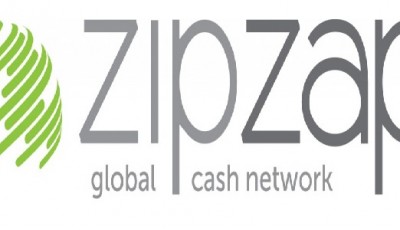An interview with ZipZap CEO Alan Safahi
 Global cash transaction network ZipZap has recently partnered with PayZone, a UK-based payment processing service, to offer its services in the UK. The deal should help UK Bitcoin users get access to Bitcoin by allowing them to purchase the digital currency with cash at more than 20,000 PayZone terminals across the UK. In order to get a better idea of ZipZap’s long-term strategy, and what the partnership will entail, we’ve spoken with their CEO, Alan Safahi, in detail. Here’s what he had to say:
Global cash transaction network ZipZap has recently partnered with PayZone, a UK-based payment processing service, to offer its services in the UK. The deal should help UK Bitcoin users get access to Bitcoin by allowing them to purchase the digital currency with cash at more than 20,000 PayZone terminals across the UK. In order to get a better idea of ZipZap’s long-term strategy, and what the partnership will entail, we’ve spoken with their CEO, Alan Safahi, in detail. Here’s what he had to say:
Q: What’s involved in your expansion to the UK? What services do you plan to provide? Where’s next on your list?
A: Our goal is to provide an easy, fast and convenient way for consumers in the UK to buy Bitcoins at good prices. We are expanding across Europe with additional partners in 34 countries, adding bank to bank transfer options, as well as cash payments.
In addition to making it easy for consumers to buy Bitcoins, we are adding the ability to also sell Bitcoins in the future, enabling consumers to sell their Bitcoins directly through the ZipZap website at the best rate and receive payments in cash or direct deposit into their bank.
Q: Tell us about your partnership with Payzone and what services it allows you to offer.
A: We have partnered with Payzone to provide the largest cash payment network for consumers in the UK to buy Bitcoins. Consumers simply visit the ZipZap website or one of our exchange partners (like ANX, Bittylicious, or Buybitcoin.sg), register online and initiate the Buy transaction. They will then receive a voucher that contains a bar code and all the information they need to make a payment at one of more than 20,000 Payzone retail locations in the UK. Once a payment is made, consumers receive their Bitcoin from one of our exchange partners within minutes. If they don’t have a Bitcoin wallet, we will help them create a free wallet in real time!
Q: Your company expresses an explicit desire to bring Bitcoin to the unbanked. Could you talk about the value that Bitcoin provides to the poor and underbanked, particularly in South America, and how that affects your company’s strategy?
A: There are more than 170 million people that are unbanked in Latin America. They have a distrust of their government and financial institutions for good reasons. Bitcoin, as a decentralized currency not impacted by government’s monetary policies, can provide an anti- inflationary option not only for the unbanked population, but also for the general population.
In addition, there are billions of people worldwide still unbanked in 2014! Millions of people daily depend on money sent by their loved ones who are migrant workers in the developed countries. Global remittance totals $540B/year and generates $74B/year in fees for money transfer companies, money that should have gone to the people who deserve it most. Moving money across the globe should not be this difficult in this day and age. It should be as easy as sending an email or downloading a song. Digital currencies like Bitcoin can provide a fast, secure and free transfer of money across borders, potentially saving millions of people from predatory remittance fees and currency conversion fees charged by money transfer companies preying on these unbanked population.
Q: What are the regulatory hurdles like for a company in your position? Which countries are most and least friendly to Bitcoin commerce?
A: We partner with banks and licensed money transfer companies who share our vision of using digital currencies to eliminate remittance fees and giving more money back to the unbanked people in the region. With more cash at the consumer’s disposal and ability to make more by making transactions online at no cost (including micro transactions), we feel digital currency will lead to higher prosperity, increased education and better healthcare for the unbanked. Once the regulators in the developing countries see the benefits to their citizens, they will embrace Bitcoin and other digital currencies.
In addition, we are working with regulators in the developed countries like the US to see the benefits of eliminating billions of dollars in remittance fees.
Q: On a broader note, what do you think are the biggest barriers to widespread cryptocurrency adoption? Where do you see Bitcoin in five years?
A: The biggest challenge to any currency is trust. We need to use consumer friendly practices to explain how digital currencies work and how they liberate consumers from shackles of fiat currencies that they have been burdened with for centuries.
Once people understand and trust digital currencies, the next biggest challenge is distribution: how to get millions of people to easily buy and sell digital currencies. Of course, this requires a vast, extensive and cost effective network to provide cash in and cash out for digital currencies. This is an area that ZipZap has been focusing on: building a global payment network of not just cash, but other payment options such as bank transfers to make it easy and convenient for anyone who wishes to buy or sell digital currencies.
It is hard to predict where Bitcoin will be in five months, let alone five years. Much depends on government regulations and mass adoption. However, there is clearly a large momentum for Bitcoin which has the best shot of any digital currencies due to it its “network effect.” All other alt currencies combined don’t even add up to 10% of Bitcoin’s volume.
Bitcoin the platform is even more exciting than Bitcoin the currency. There are a lot of smart people in the VC community investing close to $300M this year alone in Bitcoin-related startups, so we will see an onslaught of new companies with great ideas built on top of the Bitcoin platform (including new secured wallets, enterprise software with treasury management services, escrow services, title insurance/proof of ownership, identity validation and more).
Bitcoin the currency will most likely survive and continue its dominance of the digital currency market. Bitcoin the platform, however, will disrupt many global sectors including Banking/Financial Services, Insurance, Communications, Transportation, Healthcare, Education and many more.










